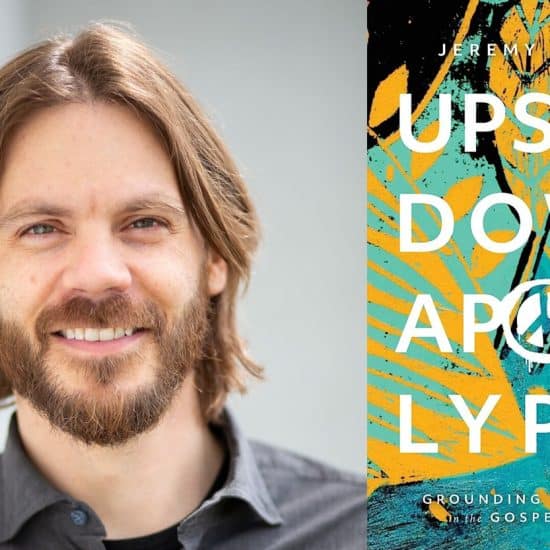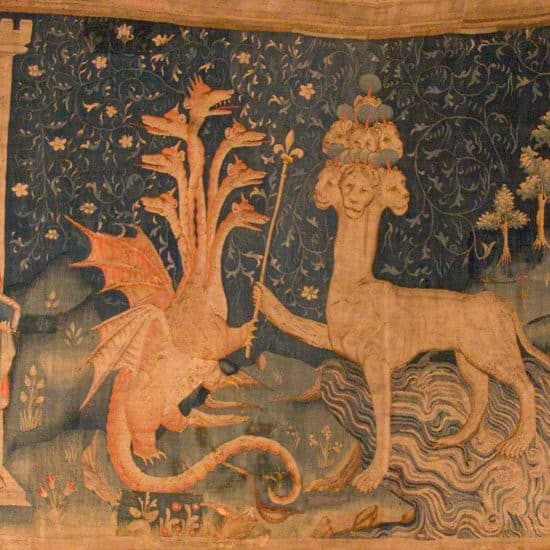 The heavenly banquet
The heavenly banquet
Formations: November 20, 2016
Scripture: Revelation 19:1-10
 Michael OlmstedForgive my sports metaphor, but last night as I write this, the Chicago Cubs won the World Series after 108 years. That’s a long time and a lot of disappointments for Cub fans to hold on to hope, but the dream came true!
Michael OlmstedForgive my sports metaphor, but last night as I write this, the Chicago Cubs won the World Series after 108 years. That’s a long time and a lot of disappointments for Cub fans to hold on to hope, but the dream came true!
Most of us know the challenges of waiting for good news, whether it has to do with a long-hoped for child to be born, or the doctor to pronounce that the cancer is gone, or the end of a war, or anything else that discourages or keeps us on edge. John’s Revelation is good news as yet unfulfilled after Jesus’ death and resurrection, generations of persecution, and even before that the Jews saga of defeat and blessings. The Apostle Paul writes of the “groaning” of all creation, as in childbirth, to know the redemption of Christ (Romans 8:22-25). Today’s text opens before us the completion of God’s promise made real in Christ, the ultimate goal, the great wedding banquet in heaven when Jesus, the bridegroom, will be “married” to his bride, the church.
Preceding chapters of Revelation focused on images of seven plagues, the wrath of God being poured out on the earth, abominations, the great beast and images comparable to many modern sci-fi movies and video games. The symbolic images, such as Babylon representing the Roman Empire, were understood by John’s readers. Actually, those images can be aptly applied to different periods of history: WWI, WWII, Communism, religious violence in the Middle East and Africa – including our times. Revelation is not time-sensitive, it is eternity-sensitive. Its message encourages Christians to live for God every day with the confidence that in God’s timing Christ will return to claim his bride.
Revelation 19:1-10 describes the celebration of God’s people at the end of time, when God exercises his final judgment and calls the redeemed to the marriage banquet of the Lamb. In this text the Greek word “hallelujah” (v. 1) is used for the ultimate expression of limitless joy because of who God is and what God does. “Hallelujah” frequently appears in our hymns and choruses, but this text is the only place in the New Testament where the word occurs. Praise is offered for both God’s judgment and his mercy. We may struggle with the combination of judgment and joy, but God is both perfectly loving and perfectly holy. God’s holiness requires both the practice of justice and the judging of evil.
In the Roman world of John’s day religion had nothing to do with moral standards or actions and much to do with power, privilege and politics. Maybe that’s not so strange to us? Christians were viewed as a danger to social stability, a threat to Roman power and often accused of evil practices. Paul had been accused of disrupting civil peace and taking business away from merchants connected to established religions. He had been arrested, beaten, jailed and finally sent to Rome for trial. John was writing from exile. Revelation graphically shows the ultimate overturn of every offense against God and the ultimate truth.
We have seen such evils reported in our news broadcasts and publications: public beheadings, abuses against women and children, dishonesty in business and government, racial prejudice and sex trafficking, among others. The cross is a declaration of hope for every person, God’s invitation to live within his grace. But the cross is also an indictment of all that is evil. When next the Savior appears in this world it will be to end Satan’s deceptive power and call God’s people to the wedding banquet of the Lamb.
The picture of marriage as an illustration of God’s love for Israel occurs often in the Old Testament. The prophets describe God as a faithful bridegroom who promises to love, cherish and protect his bride, Israel. Hosea is a dramatic portrayal of God’s steadfast love, as the prophet struggles with a wife who abandons him for adulterous relationships. In Hosea we see how God’s love prevails through the worst of circumstances to restore what seems impossible. The prophets repeatedly declared the possibility of restoration and blessings from God if Israel would return to God. The New Testament reaffirms that image. Paul teaches husbands to love their wives just as “Christ loved the church and gave himself for her.” Jesus’ first miracle was the turning of water to wine at the wedding feat in Cana (John 2:1-11).
Today’s text represents the marriage banquet as the official proclamation and celebration of marriage as practiced in Jesus’ day. Marriage did not begin with a wedding at the synagogue. A couple was considered married as soon as the two families signed a contract. The time (which varied) between the contract signing and the wedding ceremony was known as the betrothal period. The actual wedding ceremony began with a procession from the groom’s home to the bride’s home. They would then return to the groom’s home for the ceremony and banquet. For a society in which most people were poor, a wedding banquet might stretch into a week of partying, marking the happiest days of a lifetime.
Revelation is telling us (the bride) that Christ will come to claim his bride (the church) for a banquet that will never end. Everything that happens in our world, both good and bad, is preparation for the “hallelujah” of heaven forever.
Make no mistake, this period of betrothal is not to be just a time of waiting for the heavenly banquet. Every moment in this world is a time of preparation as we grow to trust God more fully, learn to follow the Holy Spirit’s leading and live by the example and words of Jesus. Any idea about sitting and waiting is a disconnect from all the Bible teaches.
As I listened to more horrible news this morning I turned again to this lesson’s text and thanked God that beyond the ugliness and injustice of our world I know the end story. At the conclusion of the banquet scene, John falls at the feet of the angel to worship him and the angel said, “Don’t do that! I’m a servant just like you and your brothers and sisters who hold firmly to the witness of Jesus. Worship God! The witness of Jesus is the spirit of prophecy!” Did you hear that? While we still have time, before the trumpet sounds, our focus must be on worshiping God. As we follow Jesus every day, as we worship, we are living out the testimony spoken by the prophets that include John. When God is our center, his Word is our pattern for living, and his love is our gift to others, then we are preparing for the heavenly banquet.
Retired after more than 45 years in pastoral ministry, Michael K. Olmsted enjoys family, supply preaching and interim work, literature, history, the arts and antiques.
Formations is a curriculum series from Smyth & Helwys Publishing, Inc. through NextSunday Resources.
The PDF download requires the free Acrobat Reader program. It can be downloaded and installed at get.adobe.com/reader.




